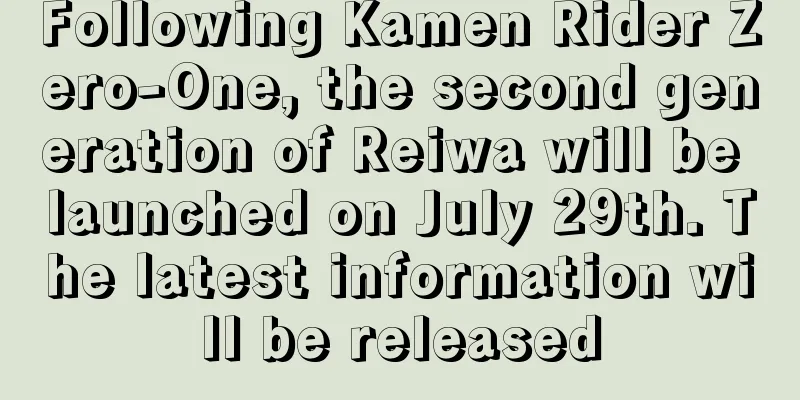A review of the powerful story and fascinating characters

The appeal and evaluation of the wild locomotiveThe animated film "Abare Kikansha" (Wild Train), released on January 1, 1932, left a strong impression on viewers at the time with its unique worldview and story. This is an original anime work, and is shrouded in mystery as the production company and creator are unknown. Below, we will introduce the appeal and reviews of this work, as well as related information, in detail. Overview"Abare Kikansha" is a short animated film consisting of only one episode. The media it was released on is listed as "other," and details about the specific broadcast format and distribution method are unknown. However, the fact that this work was released in the early 1930s is one piece of evidence that shows the development of Japanese animation culture at that time. storyThe story of "Abare Kikansha" is a simple one about a locomotive going on a rampage. However, in its simplicity, it is thought to reflect the social situation and people's feelings at the time. Japan in the 1930s was in a difficult economic situation due to the Showa Depression, so the setting of a locomotive going on a rampage may symbolize the stress and anxiety of people at the time. characterIn "Abare Kikansha," the specific character names and detailed settings are not revealed. However, the unique feature is that the locomotive itself is the protagonist, and the story progresses through its movements and expressions. Considering the technical limitations of the time, this type of character setting was a very innovative attempt. Animation TechnologyConsidering the historical background of 1932, the animation technology of "Abare Kaisha" can be considered very advanced. At that time in Japan, animation production was still in its infancy, and there were many technical limitations. However, this work shows attention to detail in the depiction of the locomotive's movements and the background, and succeeds in making a visual impact. Evaluation and impactAlthough "Abare Kikansha" is a short work of only one episode, its unique world view and storyline captivated many viewers. In particular, it has been praised for reflecting the social situation and people's feelings at the time within a simple setting of a locomotive going wild. This work can also be said to be one piece of evidence showing the development of Japanese animation culture, and may have influenced later animation works. Related informationThere is little specific information about the "Wild Locomotive," but the following related information is available:
Recommendations and related worksIf you enjoyed "Abare Locomotive," we also recommend the following works. These works also reflect the Japanese animation culture of the 1930s and contain themes and elements common to "Abare Locomotive."
summary"Abare Locomotive" is an animated work released in 1932 that captivated many viewers with its unique worldview and story. It is particularly praised for reflecting the social situation and people's feelings at the time within a simple setting of a locomotive going wild. This work can also be seen as evidence of the development of Japanese animation culture, and may have influenced later animation works. If you enjoyed "Abare Locomotive," we also recommend works such as "Momotaro," "Urashima Taro," and "Kintaro," which also reflect Japanese animation culture of the 1930s. Rediscover the charm of Japanese animation culture at that time through these works. |
<<: Review of "Big Hit Sky Taxi": More interesting and profound than expected
>>: Taro's Dream: The Appeal and Evaluation of Invincible Total Mobilization
Recommend
Theatrical photos of the Resident Evil reboot movie leaked, and the Raccoon City logo is eye-catching
At the beginning of this month, the news of the r...
Netflix's The Witcher TV series renewed for second season, seven seasons planned
Previously, Lauren S. Hissrich, producer of Netfl...
Wotakoi: Love is Hard for Otaku (7) Special Edition: What is the new challenge for the ultimate otaku couple?
Detailed review and recommendation of the special...
Netflix's adaptation of the animation "Junji Ito Maniac" released advance pictures and voice actors and will be launched in 2023
Netflix and Junji Ito's animated adaptation &...
Greasy uncle PIKO Taro and Pikachu release a new song! Both start with PI and are still magical
The new song of the collaboration between the fam...
The appeal and reviews of "TO-FU OYAKO": A moving anime depicting family ties
"Tofu Oyako": A heartwarming anime abou...
The first batch of stills of "The Lord of the Rings: The Power of the Rings" were released and will be broadcast on September 2
The first batch of stills from the TV series &quo...
The nude scenes in Marvel's "Always Agatha" were the idea of the heroine herself
The first two episodes of the Marvel series "...
Thor: Love and Thunder new trailer and poster show the muscular bodies of male and female Thors
Today (June 14), the new trailer and poster of Th...
The second season of the light novel adaptation animation "Isura" was announced and will be broadcast in January 2025
The light novel "Ishura", written by Ja...
"Magical Angel Sweetmint" Review: An invitation to a sweet and magical world
Magical Angel Sweet Mint - Looking back on nostal...
New SOS Great Tokyo Explorers: A thorough look at the appeal of fascinating urban adventures
New SOS Great Tokyo Expedition Team - The ultimat...
Detailed review and evaluation of ULTRAMAN Season 1
The appeal and evaluation of the first season of ...
The trailer for the fourth season of Bungo Stray Dogs was released and will be broadcast in January next year
Today (August 6), the first trailer for the fourt...
Sonic Official: The movie "Sonic the Hedgehog 3" will be released on December 20, 2024
Today (August 9), the official Twitter account of...









